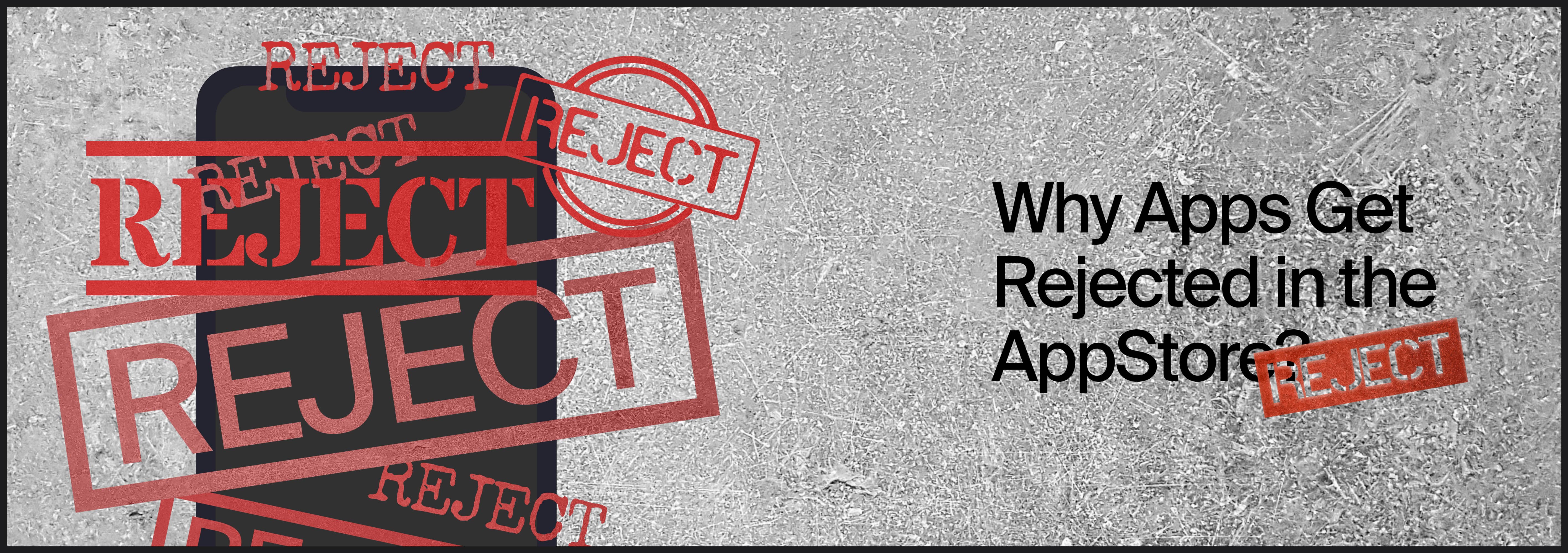Why Apps Get Rejected ?

Introduction
In the world of mobile app development, getting your app rejected is a dreaded outcome. Whether you’re developing e-commerce solutions or a gaming app, rejection can be frustrating and can set you back on your timeline. In this blog, we’ll explore the reasons why apps get rejected & what you can do to avoid it.
First and foremost, it’s important to understand that app stores have strict guidelines that developers must follow. These guidelines are in place to ensure that the apps available on their platforms meet certain standards and are safe for users to download & use. Apple & Google are the two biggest app stores, and their guidelines are quite similar. Let’s take a look at some common reasons why apps get rejected.
Technical Issues
One of the most common reasons why apps get rejected is technical issues. This can include anything from crashes & bugs to slow performance & incomplete functionality. App stores want to ensure that their users have a positive experience when using apps, & technical issues can lead to frustration & negative reviews.
To avoid this, it’s important to thoroughly test your app before submitting it to the app store. This can include testing for different device types & operating systems. You should also ensure that your app is compatible with the latest version of the operating system.
Violation of Guidelines
As previously mentioned, app stores have strict guidelines that developers must follow. Violating these guidelines can result in rejection. Guidelines can include things like inappropriate content, copyright infringement, & deceptive practices. It’s important to thoroughly review the guidelines before submitting your app to ensure that you’re following all the rules.
Poor User Experience
Another reason why apps get rejected is poor user experience. This can include anything from confusing navigation to poor design. App stores want to ensure that their users have a positive experience when using apps, and a poorly designed app can lead to frustration & negative reviews.
To avoid this, it’s important to focus on user experience when developing your app. This includes creating a clear & intuitive user interface, designing with the user in mind, &testing the app with real users to get feedback.
Lack of Value
App stores want to ensure that the apps available on their platforms provide value to users. If your app doesn’t provide any value or has limited functionality, it may be rejected. It’s important to ensure that your app provides a unique value proposition & meets a need in the market.
Privacy Concerns
Privacy is a big deal these days, & app stores want to make sure your personal info is safe. That’s why they want apps to be upfront about their data collection practices. If you’re not being honest about what you’re collecting, your app might get kicked to the curb.
To keep your app from getting rejected, it’s crucial to be transparent about what data you’re collecting & give users control over their info. Make sure to check out the app store’s privacy guidelines before submitting your app to make sure you’re on the right track.
The bottom line is basically that there are lots of reasons why an app might get rejected, like technical issues & privacy concerns. But by putting a focus on user experience, providing real value, and testing like crazy, you can up your chances of success. And if you’re working on an e-commerce solution or any other kind of app, it’s always a good idea to team up with experienced app developers who can help you through the process & make sure your app meets all the requirements. At the end of the day, the most important thing is creating a high-quality app that meets the needs of your users.
